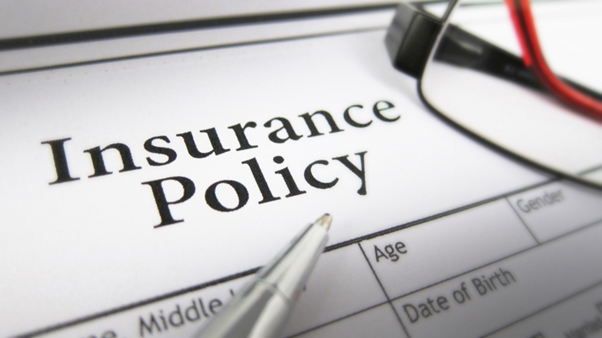When it comes to choosing the right travel insurance, it is important to take several factors into consideration. Failure to do so could cause you to
When it comes to choosing the right travel insurance, it is important to take several factors into consideration. Failure to do so could cause you to make the wrong decision.
True, buying travel insurance is always a good decision, but when it is not checked properly, the consequences can be dire.
When Karen bought a medical travel insurance last summer, she was more than happy with how cheap it was. Unfortunately, it didn’t occur to her to read the policy carefully; the travel agent told her that it covered any medical treatment overseas, and she gladly accepted that.
While holidaying in Costa Rica, she ate a shellfish that had a stone in it and broke her tooth. Karen had to undergo a minor dental surgery, which cost her £495. When she tried to claim this amount from her insurance company, she was told her medical policy didn’t cover dental treatments. It was a separate cover which Karen hadn’t considered buying.
Such mistakes can be disappointing, especially after having spent enough to buy travel insurance in the first place. To avoid them, it’s prudent to understand how various travel insurance policies work and to check all the necessary detail.
In this article, we will be discussing several types of travel insurance and how to choose the best-value policy for your trip.
A step by step guide to buying a travel insurance policy
How do you choose a good-value insurance policy? It might seem easy to just head to a price comparison website and look for the cheapest. However, there is a snag.
Price comparison websites are consulted by so many people that they ramp-up the competition and force some insurance providers to make price adjustments.
What might appear cheap, may merely be a plan that has been stripped of some important covers. Ultimately, it may be inadequate for your specific needs, as Karen found out the hard way.
Beware of choosing a travel insurance plan based solely on its price tag. First, analyse your trip. Where are you travelling to? Ask yourself, ‘What activities am I going to do?’ ‘Is my destination a high-risk area?’ ‘Are there any extreme sports involved?’ While nobody knows what might happen on any holiday, asking yourself these questions will help you choose an insurance plan that at least might cover the basics.
Everybody has a different reason for travelling. Because of that, it is difficult to recommend one umbrella insurance plan. Besides, no two travel insurance plans are the same. You can decide to customise one according to your needs.

What type of policy do you need?
We shall start by asking questions relevant to the trip. They often serve as a guide for what we will need.
1. Who is travelling?
If you are travelling with friends or family, the following options are applicable:
- A single-parent family cover.
- A couple travel insurance plan – this is if you and your partner live at the same address.
- Family holiday insurance – covers two adults and up to four children. It is ideal for parents with dependent children under 18 years old.
- Couple and child cover – it is cheaper for a couple with one child.
Things to look out for:
- A family policy may be void if some members are travelling on their own, or if some children are going with someone not included in the plan (like a boyfriend/girlfriend).
- A family policy may not include children or stepchildren who do not live at the same primary address as the policy holder.
2. Where are you going?
Most insurance policies are dependent on the travel destination. Your insurance provider will have different plans for Europe, Worldwide (except the US), as well as Worldwide.
There are certain things to consider, as this can be tricky. In travel insurance terms, ’Europe’ is different from what the world traditionally refers to as Europe. Is where you are going considered ‘Europe’ by the insurance provider? For instance, Switzerland is not a member of the EU. However, it is within Europe.
Be sure to choose a policy that covers you when taking trips over national boundaries. For example, Greece to Turkey, Morocco to Gibraltar or Mexico to the US, if your policy is based on a specific country.
Some countries are considered high-risk, based on certain present conditions. For instance, if the government has warned citizens not to travel because of health, political or natural disaster risks, your travel insurance will be considered invalid.
However, some people may still need to travel regardless. Aid workers or volunteers to crises regions will require special travel insurance. This plan is usually provided by specialised insurance companies, but we will discuss more about this later.
3. How frequently do you travel?
If you travel abroad more than two or three times a year, it is best to consider a multi-trip insurance or annual holiday insurance plan. Meanwhile, people who only travel once a year are better off with a single trip insurance policy.
People on the multi-trip insurance plan can easily up and travel anytime without ‘arranging’ to buy insurance. Policies may change however, around the specifics of each trip.
4. How long do you intend to stay?
Most annual and single trip policies provide a cover of up to 90, 120 or even 180 days. If you intend to stay longer, a special ‘long-stay’ policy provides cover for up to 18 months.

5. Are you backpacking or taking a gap year?
This type of trip is usually covered on a separate plan or by a specialist insurance company. Firstly, identify a specialist or backpacker insurance plan. Then, add covers for specific activities you will be taking part in, like scuba-diving, surfing, volunteering and so on.
If you are going to partake in any unplanned activity, such as bungee-jumping, road tripping, or motorcycle activities; it is advisable to call your insurance company for details of an additional coverage, in case of any accidents. Consider buying an extendable insurance policy, just in case you need to prolong your gap year by weeks or months. Some insurance companies provide a ‘top-up’ feature specifically for this purpose.
6. Are you participating in any extreme sports or activities?
If your idea of fun requires plenty of action and a significant amount of risk, chances are you will be doing the same while on vacation abroad. Adventurous activities such as skiing, scuba-diving, surfing and so on will require specialist travel insurance policies.
Due to the high risk involved, a standard travel plan will not cover these activities. You can buy it as a separate package or seek a specialist insurance company that offers Winter Sports insurance packages. Other examples of adventurous activities may include horse riding, kayaking and mountain biking.
7. Are you volunteering or working in sensitive regions?
If the nature of your work involves aiding people in crisis areas, then your travel insurance will fall under the specialist category. Specialist insurance companies offer cover for accidents, injury, property damage, kidnap and ransom, as well as other risks associated with challenging places.
Places that are susceptible to disasters, such as earthquakes, volcanic eruptions or health problems, may also require special coverage. It is important to research the details of your destination thoroughly to avoid selecting an inadequate insurance policy.
8. What other situations require a specialist policy?
Are you a senior or travelling with one? There are specialist policies for senior travellers too. People over 65 years old may consider asking the insurance provider to prepare a package for them. Other specifics include pre-existing health conditions or special allergic reactions.
Essential covers for travel insurance
Most insurance providers offer the following as part of their standard policy:
- Full medical cover
- Cancellation and curtailment cover
- Loss and theft of baggage cover
- Personal liability cover
After addressing the issues listed previously, if you do not require a specialist travel insurance package, any (or a combination) of the offers in a standard travel insurance policy will suffice.
However, it is also necessary to verify the details of the policy you buy. We will be discussing what to look out for under each coverage.
– Full medical cover
Your local medical insurance does not cover treatments abroad. A medical travel insurance ensures that your medical bills are covered by the insurance company if you need it. From food allergies to serious personal injuries, you can avoid hefty medical expenses.
It is advisable to read the conditions of your plan before fully committing to payment. In some cases, there are exclusions to certain coverages. For instance, some insurance companies may specify payments for the type of hospital. Do they cover Private as well as Public Hospitals?
Other things to check are:
Pre-existing conditions: A standard medical travel insurance will normally not include any pre-existing medical conditions. This is a common mistake most people make; assuming that pre-existing conditions are covered by their plan. If your regular knee ache suddenly acts up while on vacation, or if you are forced to cut short the trip because of your child’s sensitive sinuses, will the insurance cover it?
Also, does the plan include dental care? If so, what is the limit? These questions might have saved Karen if she was more careful. Ensure that the dental limit of your cover is at least £500.
Medical evacuations: This is usually an optional service, but some insurers provide it as part of the medical cover. A medical evacuation (medivac) is necessary when the affected individual needs constant medical attention when returning home – one that is not available on a commercial airline. This may also apply if the country of vacation does not have sufficient medical equipment to treat the tourist. In this case, a medivac helicopter is required. While it costs a lot to hire one, an insurance plan can make the expense bearable.
– Cancellation and curtailment
Also known as Flight Insurance, this type of cover is used to hedge against costs associated with cancelled flights. For instance, if you need to:
- Cancel a trip
- Cut short your vacation for a family emergency
These changes in plans usually result in additional costs you might not have budgeted for. Fortunately, a cancellation and curtailment plan can cover you. However, it is not automatic. Some insurers will only pay out if you cancel your trip for specific reasons:
- Indisposition of a direct family member
- You have been ordered by a doctor to cancel your vacation
- You need to return home because of a house fire
- Your company makes you redundant
- You are invited for immediate jury service
- A sudden earthquake at your intended destination
The cover in this plan may range from £250 – £25,000.
– Loss and theft of baggage cover
Most insurers provide a policy limit between £1,500 – £3,000 for stolen items. However, the excesses may be high and the claimable limits for the valuables are usually low. Additionally, your idea of ‘valuables’ may differ from the insurer’s. Therefore, declare your belongings and verify from your insurer if your belongings are covered in the plan.
Not many insurers are willing to pay for reimbursement of expensive stolen items, such as a DSLR camera, laptop, tablets and so on. When they do, it is under the condition of violent theft of forced entry. If you put in a claim for a stolen laptop and your room show no signs of a break in, the insurer will not pay for the loss.
Similarly, they will not pay for a stolen item if you do not present a police report. Whether enforcement authorities act or not, a police report is an indication of theft admittance.
– Personal liability cover
A personal liability cover is taken to protect you in case of a lawsuit against you or if you are held liable for damage of property. Injuring a third-party comes under a personal liability cover. An ideal limit for a cover is £1,000,000. If you are involved in adventure sports, or if you are renting a car, this cover is necessary.
Before buying a travel insurance policy, ensure you address all the issues mentioned. While some may not apply to you, others are standard. In any case, a travel insurance policy is a given for anybody travelling abroad.



















































































































COMMENTS